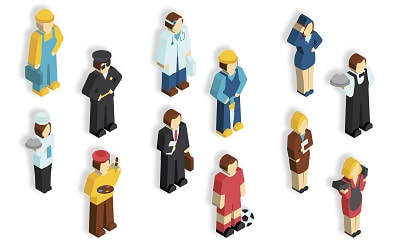David Tickner's Blog, page 48
July 6, 2020
July 5, 2020
Agent
A word almost unchanged over hundreds of years.
From Latin agentum (effective, powerful), Latin agens, agere (to drive, to set in motion; to do, perform; to keep in movement); from Greek agein (to drive, to lead); and from the Proto-Indo-European (PIE) root ag (to drive, to draw out or forth, to move, to lead).
The English word agent (one who acts) is from 1471. Agent, meaning any natural force or substance which produces something, is from the 1550s; meaning a deputy or representative is from the 1590s; and used in the sense of a spy or secret agent is from 1916.
From Latin agentum (effective, powerful), Latin agens, agere (to drive, to set in motion; to do, perform; to keep in movement); from Greek agein (to drive, to lead); and from the Proto-Indo-European (PIE) root ag (to drive, to draw out or forth, to move, to lead).
The English word agent (one who acts) is from 1471. Agent, meaning any natural force or substance which produces something, is from the 1550s; meaning a deputy or representative is from the 1590s; and used in the sense of a spy or secret agent is from 1916.
Published on July 05, 2020 12:39
Trust
Trust is an ancient word which has not changed much over the centuries. Trust has always been foundational to social cohesion whether personal or political. If you can’t trust the people around you, who can you trust? You pay your taxes and trust that the firefighters or police will arrive if and when you need them. Trust, when broken or betrayed, is often irreparable.
The word trust has its origins in the Proto-Indo-European (PIE) root deru (be firm, solid, steadfast), also the source of words such an endurance, durable, and words related to wood; e.g., Sanskrit dru (tree), Greek drys (oak), Welsh derwen (oak), and Old English treo (tree).
PIE deru is the source of Proto-Germanic traustam from which comes Old Frisian trast, Dutch troost (comfort, consolation), Old High German trost (trust, fidelity), German trost (comfort, consolation), and Old Norse traust (help, confidence, protection, support). Also from PIE deru comes Proto-Germanic treuwaz, the source of Old English treowian (to believe, trust) and treowe (faithful, trusty). Note the intriguing connection between trees and trust, but let that be another story.
The word faith is closely related to the word trust. The word faith has its origins in the PIE root bheidh (to trust, confide, persuade) and Latin fides (trust, faith, confidence).
The word trust meaning reliance on the veracity, integrity or other virtues of someone or something and also meaning religious faith comes to English around 1200. The verb ‘to trust’ is also seen at this time. By the late 14th century, trust also meant confident expectation and ‘that on which one relies’. The uses of trust in the context of business and law are seen from the early 15th century. The word trustful is from the 1570s and trustworthy is from 1791.
Do we have distrust (absence of trust; doubt or suspicion), a 16th century word; or, do we have mistrust (lack of confidence, suspicion), a 14th century word? Even though the words are very similar in use and meaning, generally speaking, we use distrust when we have experience or evidence that someone or something is not trustworthy. On the other hand, we use mistrust when we only have a suspicion that someone or something is not trustworthy.
“Whoever is careless with the truth in small matters cannot be trusted with important matters.” Albert Einstein
“I’m not upset that you lied to me, I’m upset that from now on I can’t believe you.” Friedrich Nietzsche
Online Etymological Dictionary, https://www.etymonline.com/
The word trust has its origins in the Proto-Indo-European (PIE) root deru (be firm, solid, steadfast), also the source of words such an endurance, durable, and words related to wood; e.g., Sanskrit dru (tree), Greek drys (oak), Welsh derwen (oak), and Old English treo (tree).
PIE deru is the source of Proto-Germanic traustam from which comes Old Frisian trast, Dutch troost (comfort, consolation), Old High German trost (trust, fidelity), German trost (comfort, consolation), and Old Norse traust (help, confidence, protection, support). Also from PIE deru comes Proto-Germanic treuwaz, the source of Old English treowian (to believe, trust) and treowe (faithful, trusty). Note the intriguing connection between trees and trust, but let that be another story.
The word faith is closely related to the word trust. The word faith has its origins in the PIE root bheidh (to trust, confide, persuade) and Latin fides (trust, faith, confidence).
The word trust meaning reliance on the veracity, integrity or other virtues of someone or something and also meaning religious faith comes to English around 1200. The verb ‘to trust’ is also seen at this time. By the late 14th century, trust also meant confident expectation and ‘that on which one relies’. The uses of trust in the context of business and law are seen from the early 15th century. The word trustful is from the 1570s and trustworthy is from 1791.
Do we have distrust (absence of trust; doubt or suspicion), a 16th century word; or, do we have mistrust (lack of confidence, suspicion), a 14th century word? Even though the words are very similar in use and meaning, generally speaking, we use distrust when we have experience or evidence that someone or something is not trustworthy. On the other hand, we use mistrust when we only have a suspicion that someone or something is not trustworthy.
“Whoever is careless with the truth in small matters cannot be trusted with important matters.” Albert Einstein
“I’m not upset that you lied to me, I’m upset that from now on I can’t believe you.” Friedrich Nietzsche
Online Etymological Dictionary, https://www.etymonline.com/
Published on July 05, 2020 12:30
July 4, 2020
Acupuncturist
Acu- comes from Latin acus (needle). -Puncture comes from Latin punctura (a pricking) and pungere (to pierce); and from Proto-Indo-European (PIE) peug (to prick, to jab). Also related to Latin pungens (pungent), Latin pugil (boxer), and Latin pugnus (fist). The English word acupuncturist is from 1684.
Published on July 04, 2020 14:30
Old proverbs...
“When the student is ready, the teacher appears.”
Old Buddhist proverb
“When the student appears, the teacher is ready.”
Old Tickner proverb
Old Buddhist proverb
“When the student appears, the teacher is ready.”
Old Tickner proverb
Published on July 04, 2020 14:27
July 3, 2020
LEARNING
 Do you ever feel when you’re doing something that you’re ‘in the groove’ or ‘in the zone’?
Do you ever feel when you’re doing something that you’re ‘in the groove’ or ‘in the zone’?When you’re learning, you really are in the groove; or, to be more specific, in the furrow.
The word learning has its origins in the Proto-Indo-European (PIE) root lois (furrow, track). From this source comes Proto-Germanic lisnojanan, Old Frisian lernia, Dutch leren, German lernen, and Old English leornian (to learn). The word learning is from Old English leornung (the action of acquiring knowledge). The word learning, from the mid-14th century, means knowledge acquired by systematic study, research, and experimentation.
The term ‘learning curve’ is from 1907.
The term ‘teachable moment’ became popular in the 1950s. The flip side of this, of course, is the ‘learning moment’ (or the ‘learning instant’, as a colleague says), terms which became popular in the 1990s. In both cases, teacher and learner can find themselves grooving together!
Reference: Online Etymological Dictionary, https://www.etymonline.com/
Published on July 03, 2020 13:47
OCCUPATIONS
 What occupies your time? What are you occupied by?
What occupies your time? What are you occupied by?The word occupation has its origins in the Proto-Indo-European (PIE) root kap (to grasp) and Latin occupare (to take over, seize, grasp, take into possession, occupy). By the mid-14th century, the English word occupy meant to take possession of, or to take up space or time, or to employ someone; i.e., to take up their time. The word occupation, meaning to be employed in something, is also from the mid-14th century. Here are the origins of some occupations…
Barber comes from PIE bhardha (beard).
Baxter means a female baker.
Broker has the same origin as the word broccoli.
The Latin word carpentarius means wagon-maker (i.e., a cartwright). The Latin word for carpenter is lignarius (from lignum, meaning wood). The Old English word for carpenter is treowwyrhta (tree-wright). So, how did Latin carpentarius become the English word carpenter? A friend suggested that maybe ancient carpentarii earned a bit of money on the side building tables or shelves or sheds when not building wagons. Who knows?
Cosmetician comes from Greek cosmos (the ordered universe), the opposite of Greek khaos (the original state of the universe). A cosmetician is someone who uses cosmetics to bring order to the chaos of your face.
Electrician comes from ancient words meaning petrified tree sap.
Engineer comes from ancient words meaning ingenious.
The Greek words gaia, geo (earth) + ergo (work) combine to make ‘earth worker’ or farmer or the name George.
There was a time when the word occupant also meant prostitute.
I could go on.
Online Etymological Dictionary, https://www.etymonline.com/
Published on July 03, 2020 13:25



